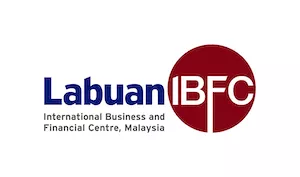Growth in Digital Family, testament to the jurisdiction's progressive approach in embracing the digital revolution
Kuala Lumpur, 10 December 2020 – Labuan International Business and Financial Centre (Labuan IBFC) continues to attract new business innovations and opportunities as evidenced by the influx of digital financial service providers revolutionising its financial offerings.
"This segment has grown significantly in the last four years in tandem with our aspirations to have the market embrace digitalisation as the future of conducting business," said Labuan Financial Services Authority (Labuan FSA) Director-General, Datuk Danial Mah Abdullah at the second Connecting Digital Ecosystems Asia (CoDE Asia 2020) today.
Mah added that the "digital family" has grown due to the progressive approach the centre has taken in embracing the digital revolution, by recognising that the nature of all Labuan legacy licences may be structured to be a digital variant for as long as all entry criteria, regulatory requirements and supervisory needs can be met.
"The COVID-19 pandemic has also profoundly impacted the international market and businesses. It has forced businesses to pivot as the old ways of doing things will not work anymore. Many organisations have had to digitally transform their operations to meet customer expectations and needs" Mah said.
Labuan IBFC's debut as a digital friendly jurisdiction began in 2017 with just one licence and has since expanded with a wide range of digital businesses and players, from digital banking and insurtech to intermediaries such as robo-advisory, digital asset exchanges, crypto trading platforms, tokenization licences and e-payment systems.
The jurisdiction has approved a total of 46 Digital Financial Services operators as at 30 June 2020 including three digital banks, two digital securities exchange and 19 crypto trading platform providers.
Farah Jaafar-Crossby, CEO of Labuan IBFC Inc, the market development arm of the jurisdiction said "Labuan IBFC offers currency and tax neutrality, as well as proportionality in regulation –these key elements are essential for digital service providers to thrive under their demanding and competitive operational parameters". She added that the recently launched digital banking framework by Labuan FSA is an example of the progressive and facilitative stance which prevails in the jurisdiction.
Labuan IBFC celebrated its 30th year of establishment in 2020, with more than 6,000 entities which include banks, insurance and insurance related entities, trust companies and many other business sectors.
Mah added that whilst it is important to grow the number digital licence holders in the jurisdiction, Labuan IBFC encourages intra-Labuan IBFC transactional activities through the collaborations between its industry players in innovating product or service offerings, whether in the digital or conventional markets.
Mah went on to add that it is imperative that Labuan FSA, being the regulator and administrator of the jurisdiction, ensures that these businesses are undertaken in an orderly and prudent manner and that regulations adhere to global standards. As such it is constantly scanning the environment for new emerging risks and possible threats that would undermine the stability of the centre, such as those related to cyber and money laundering risks, as well as planned measures for a business environment post COVID-19, when adopting to new norms of business will be key to the jurisdictions continued success.
"Business wise, we are holistically reviewing the various business guidelines to be in line with the various changes that are transforming the marketplaces as well as with international and regional norms," said Mah.
The virtual edition of Connecting Digital Ecosystems Asia 2020 (CoDE Asia 2020) was themed "Is Digital Transformation COVID-19's Real Panacea?" highlighting the opportunities and challenges facing the digital ecosystem in this pandemic riddled world and how digitalisation of financial services will also provide for financial inclusion.
The content of this article is intended to provide a general guide to the subject matter. Specialist advice should be sought about your specific circumstances.

